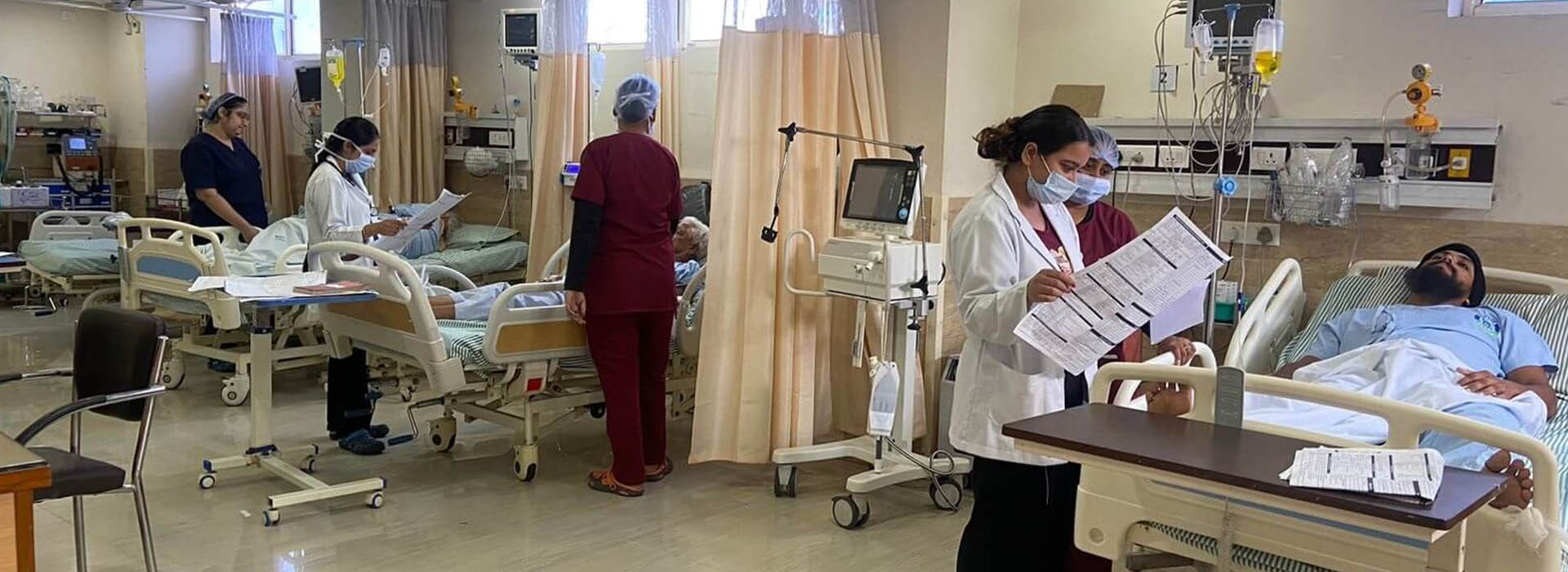
ICU and CCU provide 24-hour care for individuals with life-threatening conditions. Intensive care is needed if someone is seriously ill and requires intensive treatment and close monitoring, or if they’re having surgery and intensive care can help them recover. Most people in an ICU have problems with one or more organs. For example, they may be unable to breathe on their own. There are many different conditions and situations that can mean someone needs intensive care. The critical care unit (CCU) at Bhatia hospital is specialized, round-the-clock care for patients with serious medical conditions. The unit is manned by intensivists, qualified and trained in the resuscitation and management of critical patients. Trained nurses and paramedics in association with personnel from the department of dietetics and physiotherapy form the complete team of the department and are responsible for standardized and protocolized management. Learning that you or someone you love needs to be admitted to the CCU can be stressful, but you can take comfort in knowing that Bhatia hospital is the best place for a patient to receive the dedicated medical service they need. Patients in the CCU are monitored 24*7 by specially trained clinicians who keep a close watch on each patient’s vital signs. If any abnormalities or warning signs arise, our medical professionals act at a moment’s notice to ensure the patient gets the best treatment. ICU and CCU provide 24-hour care for individuals with life-threatening conditions. Intensive care is needed if someone is seriously ill and requires intensive treatment and close monitoring, or if they’re having surgery and intensive care can help them recover. Most people on an ICU have problems with one or more organs. For example, they may be unable to breathe on their own. There are many different conditions and situations that can mean someone needs intensive care. The critical care unit (CCU) at Bhatia hospital is specialized, round-the-clock care for patients with serious medical conditions. The unit is manned by intensivists, qualified and trained in the resuscitation and management of critical patients. Trained nurses, paramedics in association with personnel from the department of dietetics and physiotherapy form the complete team of the department and are responsible for standardized and protocolized management. Learning that you or someone you love needs to be admitted to the CCU can be stressful, but you can take comfort knowing that Bhatia hospital is the best place for a patient to receive the dedicated medical service they need. Patients in the CCU are monitored 24*7 by specially trained clinicians who keep a close watch on each patient’s vital signs. If any abnormalities or warning signs arise, our medical professionals act at a moment’s notice to ensure the patient gets the best treatment.
Visitors in the ICU are usually restricted to just family members and only one or two visitors at a time.
Admittance to an ICU means there’s a life threatening event. You may need to be cared for in the ICU if you:
Treatment
Arterial LinePutting canula in the artery
TracheostomyPutting tube by making hole in the neck
Ryles TubePutting tube in the stomach for meal

MD (Anaesthesia) IDCCM (Critical Care)